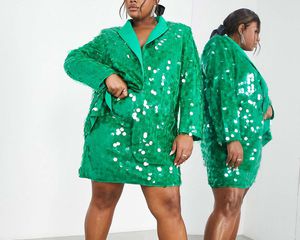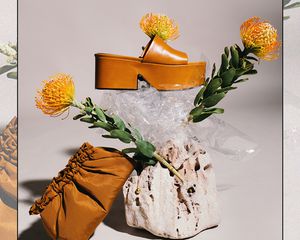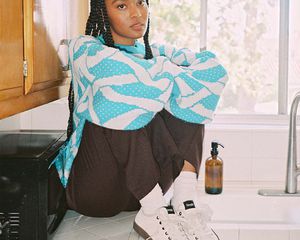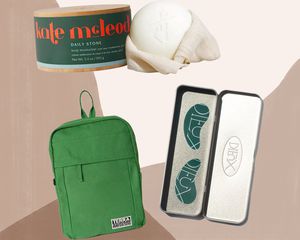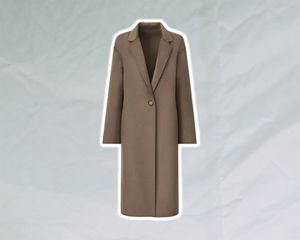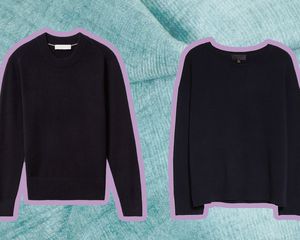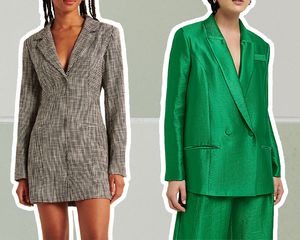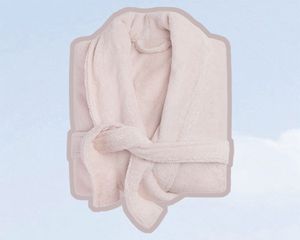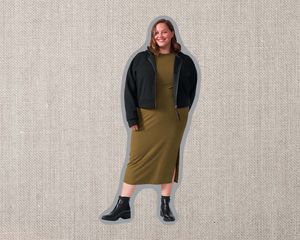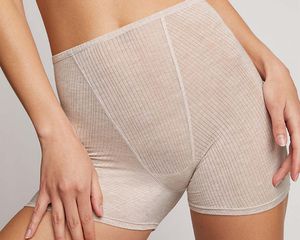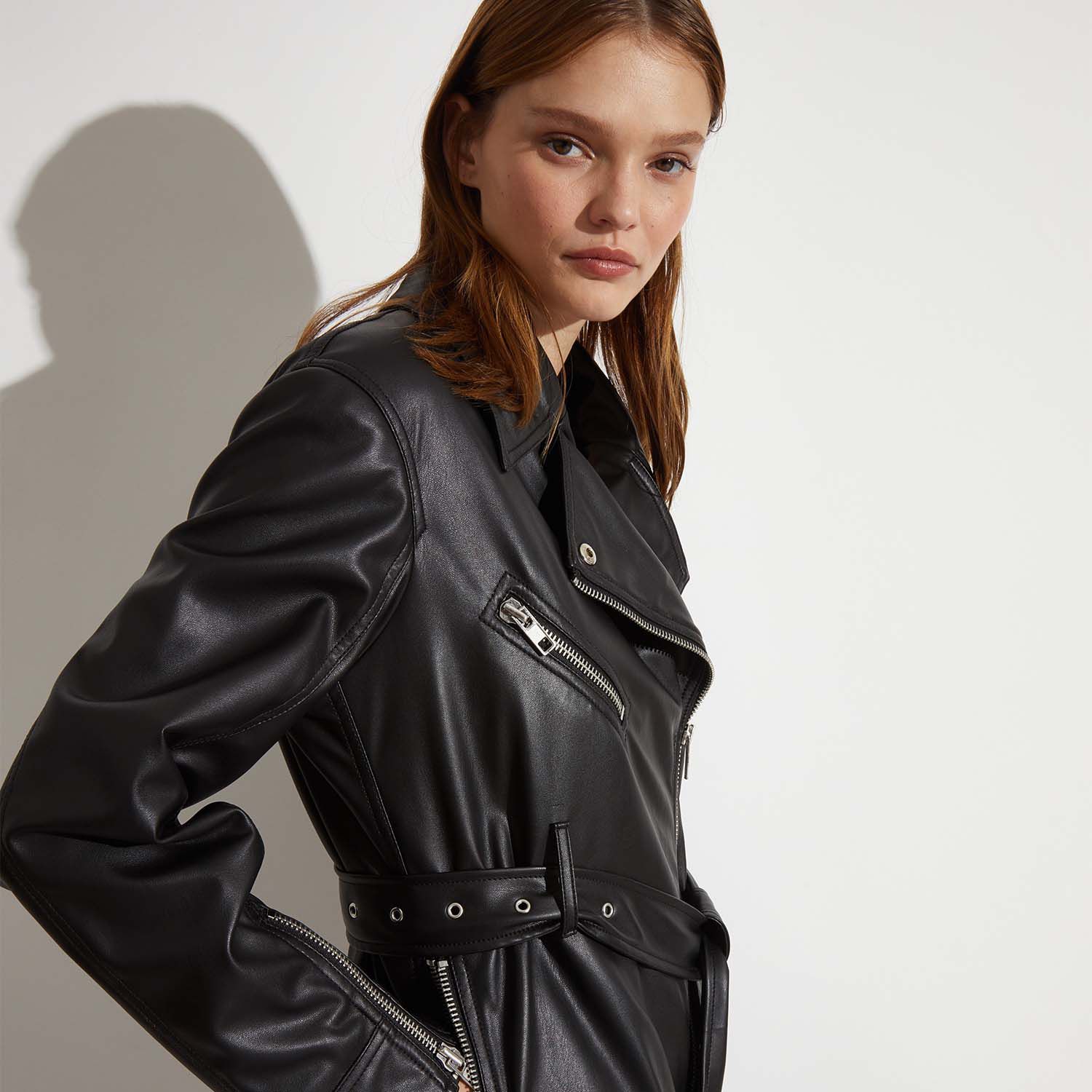
Saint Art
New Year’s Eve is a holiday dedicated to celebrating that which is still to come, and there’s no better way to honor the future than to show up to your event dressed in an environmentally-friendly ensemble. Elegant and ethically-sourced aren’t mutually exclusive concepts, so if you need help choosing an outfit that will help you look great without making the planet feel worse, then ditch the sequins and opt instead for a sustainable look. Below, some of our favorite picks for 2023.
Organic Silk
The CFDA qualifies silk as a “more sustainable fiber” writing, “It is a renewable resource, can biodegrade, and uses less water, chemicals, and energy than many other fibers.” But silk production is an imperfect process, one which affects silkworms, mulberry tree cultivation, and requires high amounts of energy. For a more environmentally friendly option, organic silk is made exactly the same way as conventional silk, except the silkworms are fed mulberry leaves that have not been treated with insecticides, fungicides, or genetic spray.
Organic silk sounds intimidating, but reasonably-priced options exist. Look at the Elegant V Neck Silk Dress With Pearl from LilySilk, a sustainable Chinese clothing brand that has 12 years of experience in silk-making.
Or for a conventional silk alternative, check out either the V Silk Slip Dress Length in Barely Pink or the Icon Silk Slip Dress from Anaphe Silk, a brand specializing in sustainable luxury silk and lifestyle products.
Product Picks
Recycled Velvet
Soft as it is to the touch, velvet is not thought of as having a small carbon footprint. Most velvet fabrics are made from polyester, a material which is notoriously water-thirsty and—because it is made of plastic—is not biodegradable.
To wear velvet sustainably, buying second-hand clothing or new clothing made of recycled velvet is the way to go. For a fun, trendy NYE outfit, allow yourself to be inspired by these Stretch Recycled-Velvet Flared Pants from Ganni, a Copenhagen-based brand that uses natural fabrics, like GRS-certified recycled velvet.
Product Picks
Recycled Cotton
The World Wildlife Fund’s review of cotton is not great: Production on the fabric includes the use of agrochemicals, requires heavy water consumption, and results in soil erosion, water contamination, and pollution. A more sustainable option than both conventional and organic cotton is recycled cotton, which in addition to upcycling old clothing and reducing reliance on landfills, doesn’t use the same energy or water consumption required to make regular cotton.
Celebrate your reduced carbon footprint in this Sparkle V-Back Dress made with 60% recycled cotton, designed by The White Company, a luxury London retailer.
Or, for an organic cotton option, this Farley Long Sleeve Stretch Dress in Corvette from beloved Los Angeles sustainable brand Reformation is the perfect option to pair with your New Year’s Eve dinner reservations.
Product Picks
Organic Hemp
The CFDA calls organic hemp “one of the most sustainable fibers you can use.” Grown all around the world, the fabric is ubiquitous, requires minimal water, zero chemicals, and even gives back by fertilizing the soil in which it grows.
If you’re an ecological overachiever, organic hemp might be the fabric for you. And if you’re still riding that merry and bright energy from Christmas, consider the Sara Print Hemp Dress by Mara Hoffman: splashed with abstract patterns and bold hues, you can start 2023 with vibrant vibes.
Product Picks
Tencel
Experiencing a surge in popularity is Tencel, a light cellulose fabric created by disintegrating wood pulp. Manufactured by Lenzing AG, an Austrian company, Tencel is 50% more absorbent than cotton and is produced much more sustainably. Although there are chemicals involved in making the fiber, according to Good On You, a site that provides ethical and sustainable fashion brand ratings, these chemicals are managed in a “closed-loop system. This means the solvent is recycled which reduces dangerous waste.”
For the cauldrife among us who would prefer to stay home than to expose any skin during the height of winter’s chill, consider this long-sleeved Hyacinth Tencel™ Ruched Dress. Designed by Ninety Percent, a luxury, sustainable fashion label, this look is perfect for the person who wants to show off their curves, but refuses to stand in line in the cold without a coat.
Product Picks
Recycled Wool
Wool is one of the oldest known natural fibers, but it’s also a material whose production has been linked to increased atmospheric greenhouse gasses, land degradation, and water pollution. Recycled wool pulls from material already in circulation, reducing environmental and ethical concerns, while still keeping you warm and cozy.
This Long Sleeve Recycled Wool Blend Dress by California luxury brand Vince features faux-leather cuffs and a sash. Lightweight and soft, it’s perfect for a work holiday party: if you’re not going to be comfortable socially, you might as well be comfortable physically.
Product Picks
Vegan Leather
As a sustainable fabric, vegan leather is something of an enigma. On one hand, the material is cruelty-free and animal-approved. On the other hand, vegan leather is often made from synthetic materials like petroleum (otherwise known as fossil fuel). Vegan leather isn’t a perfect option, but there are many ways of making an impact, and if animal rights are high on your list of ecological concerns, vegan leather might be the fabric for you.
You’ll find an excellent day-to-night option in this Monroe Moto Vegan Leather dress from New York street style and slow fashion brand, Saint Art. The perfect transitional piece, this convertible dress/jacket will look as chic at the office as it will out on the town.
Product Picks
Cupro
Cupro is another fabric that comes with both sustainable benefits and drawbacks. Created from cotton waste, Cupro is a plant-based material that undergoes chemical treatment in order to create the fibers for the fabric. It is both vegan and cruelty-free, but it is also produced using chemicals that are toxic when improperly disposed of. If a cupro piece catches your eye, it’s worth doing some research into the brand’s practices for manufacturing the fabric—the more transparent they are about their processes, the easier it is for you to determine how ethical their product is.
For a sophisticated night of celebrating, try the gorgeously hued Cupro Midi Dress by Spanish fashion designer Adolfo Dominguez, whose line is committed to environmentally-friendly consumption.
Product Picks
Recycled Cashmere
Cashmere is luxurious, but is it also destructive? The fabric is natural, which makes it a better option than any of the synthetic materials. However, production has increased in recent years as cashmere becomes more widely incorporated into collections created by fast-fashion brands. This new demand has necessitated a larger amount of goats (cashmere comes from the animal’s undercoat), which has in turn led to further degradation of grasslands, elevating the fabric’s carbon footprint.
As always, secondhand or recycled versions of the fabric are the more sustainable options. And French brand Etam offers the Alana, a 100% recycled cashmere dress. Perfect for spending New Year’s Eve at home in ultimate comfort and style.
Product Picks
Recycled Sequins
Sequins are the look most closely associated with end-of-the-year festivities, but from a sustainability standpoint, that might need to change. In 2019, Oxfam reported that 1.7 million sequined pieces would be trashed after the holiday period, which is concerning because most sequins are made of materials that don’t biodegrade, and one garment can require as many as 200,000 of the spangly adornments to achieve full coverage.
If you’re still looking to shimmer this holiday season, check out this Recycled Sequined Mini Dress from the British brand COS, who sustainably sources 92% of their materials, with the intention of reaching 100% by 2025.


